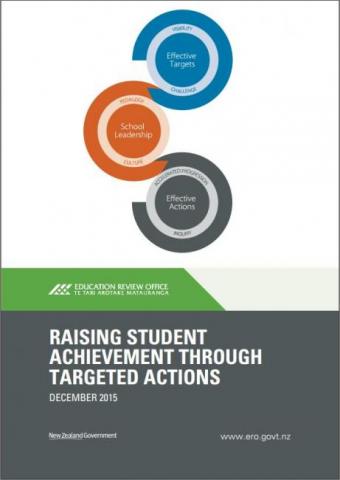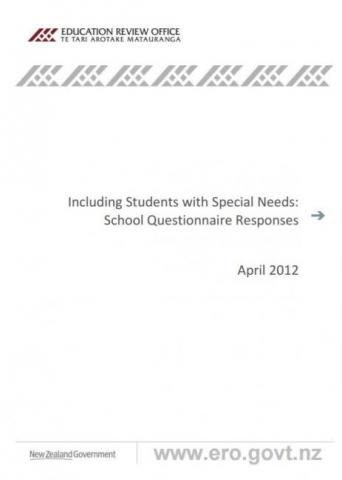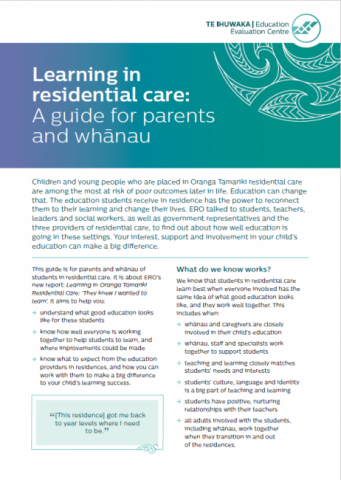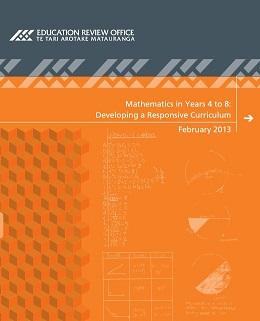Internal evaluation processes
Published: 04 Sep 2017
Evaluation and review are the engine room that drives the improvement agenda forward, involving all within the learning community in an ongoing cycle.
- Audience:
- Parents
- Schools
- Content type:
- Research
- Topics:
- Video
- Improvement in Action Te Ahu Whakamua












